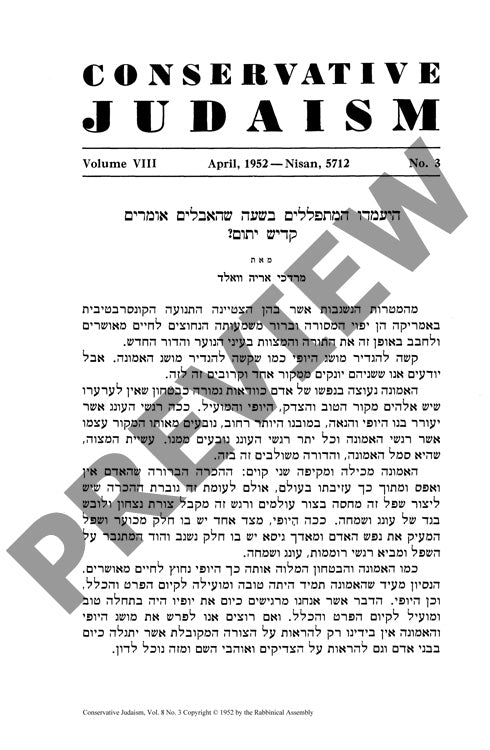Ha Yaamdu Ha Mitpallim Be Shaah She Ha A
Couldn't load pickup availability
When mourners rise to recite Kaddish in Conservative synagogues, should the congregation stand with them? This centuries-old liturgical question carries profound implications for communal prayer, grief support, and sacred ritual. Traditional rabbinical analysis reveals that standing during Kaddish aligns with established protocols for other sacred recitations requiring a minyan, such as Kedushah and Hallel. Through examination of Talmudic sources and medieval authorities, alongside contemporary American synagogue practices, a clear pattern emerges: the essence of Kaddish lies in communal response ("Yehe shemeh rabbah"), making congregational participation through standing both liturgically appropriate and spiritually meaningful. The modern tendency toward congregational passivity during Mourner's Kaddish represents a concerning departure from traditional practice that diminishes both the mourner's spiritual experience and the community's supportive role. Textual analysis of classical halakhic sources demonstrates that restoring congregational standing would enhance the ritual's sanctity and its function as a vehicle for communal consolation, while providing opportunities for religious education and deeper engagement with Jewish tradition among mourners seeking meaning during bereavement.

More Information
-
Physical Description
-
Publication Information
Published 1952
ISBN
-
Publication Credits
Mordekhai Wald

